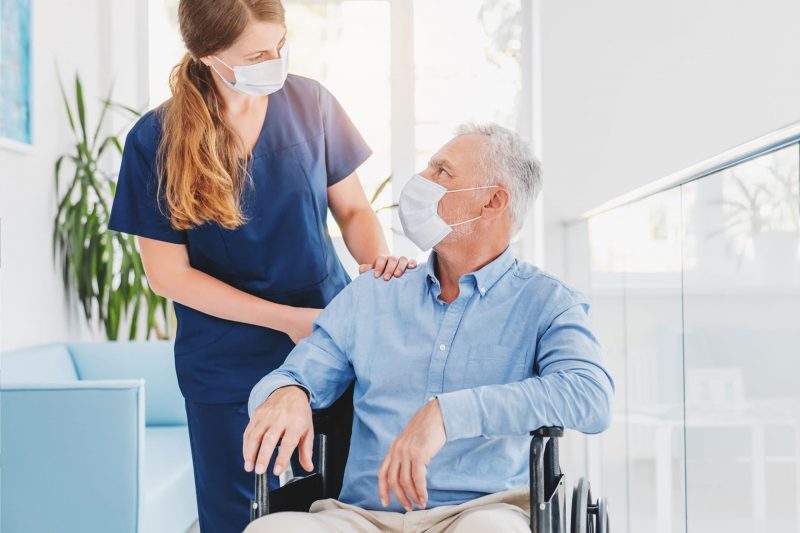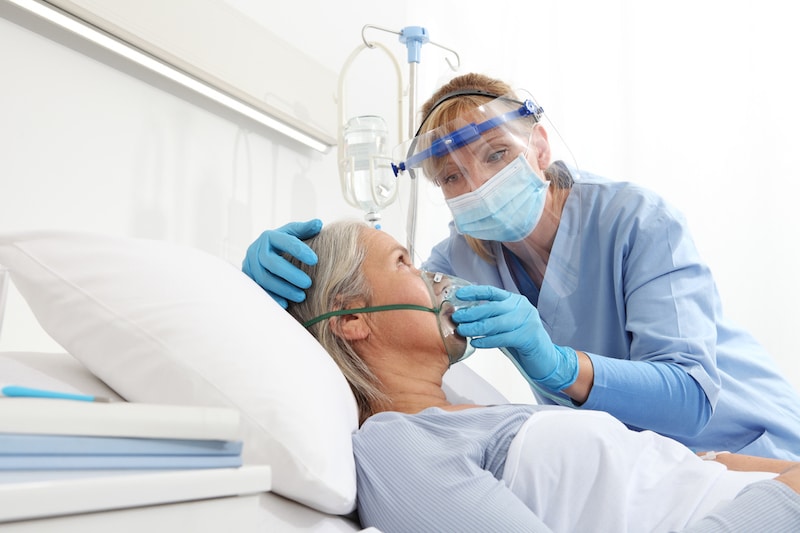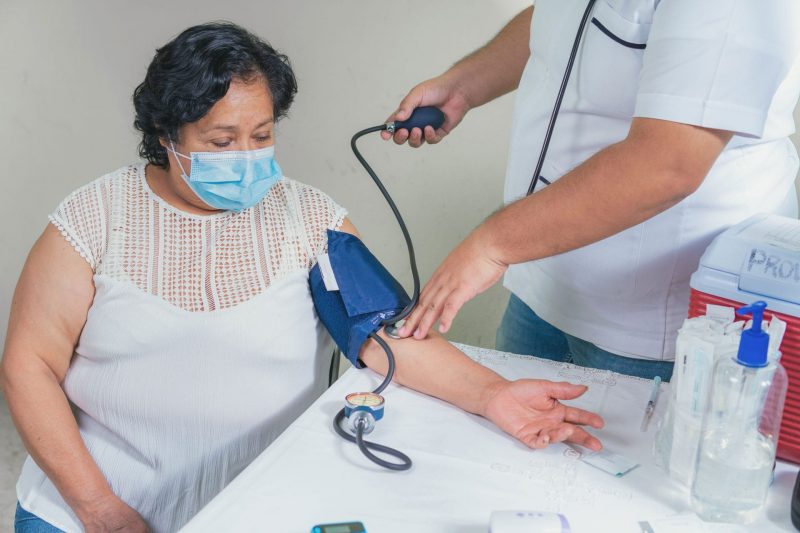Breathing is something most people don’t think about. We often go about our day without considering the complexities of what our respiratory systems are doing for our bodies. It’s only when we experience respiratory issues that we understand how essential every breath is to our health and wellbeing. Our Arizona respiratory care experts explain.

What Is the Respiratory System?
The respiratory system is an intricate network comprised of all the organs and body parts that are involved in the breathing process. Parts of the respiratory system include:
- Mouth
- Nose and Nasal Cavity
- Pharynx (throat)
- Larynx (voice box)
- Trachea
- Bronchial Tubes
- Bronchioles
- Lungs
- Alveoli (air sacs)
- Capillaries
- Diaphragm
These body parts each play an integral role in respiration. When one of the respiratory system organs is damaged or affected by disease or injury, breathing can become difficult. When this happens, the cells in our body may not get enough oxygen to function at their best. This is why it’s so important to get proper care when recovering from a respiratory illness or surgery.
Haven Health in Tucson, AZ, offers specialized respiratory care to help you or a loved one during the recovery process. Contact us to learn more.
How the Respiratory System Works
Every time we fill our lungs with air, we breathe in the oxygen our cells need to function. As we exhale, our lungs push out the carbon dioxide gas that is toxic to our bodies. According to the American Lung Association1, the average person breathes between 12 to 15 times per minute or 17,000 breaths in a day! What’s even more impressive is that the lungs never take a break.
The primary muscle that controls our breathing is the diaphragm, a dense dome-shaped muscle that draws air in and out of the lungs by expanding and contracting. When the diaphragm contracts and pulls downward, it creates a vacuum in the chest that pulls air into your lungs. As the muscle relaxes, it pushes upward on the lungs to deflate them of the air.
Although the process seems quite simple, a lot is happening in those few seconds:
- Air filtration – The airway is lined with cilia and mucus that helps to filter out harmful substances like dust, viruses and bacteria from the air before entering the lungs.
- Distance – The air passes through the throat, windpipe, the two main bronchial tubes and into the bronchioles and air sacs (alveoli). The average person’s airway can span the length of about 1,500 miles¹!
- Oxygen exchange – While the air is in the alveoli, fresh oxygen is exchanged with carbon dioxide in the blood. The oxygen-rich blood is then pumped through the cardiovascular system to deliver the oxygen and pick up the carbon dioxide waste from our cells.
- Carbon dioxide removal – After the oxygen and carbon dioxide exchange occurs in the lung’s air sacs, the carbon dioxide-dense air is pushed out of our lungs and back up the airway until it is expelled from the nose or mouth.
Every person has a set of two lungs. However, your lungs are not identical. The left lung is slightly smaller than the right lung because it shares the chest cavity with the heart. That is why the left lung only has two lobes while the right lung has three. Each lobe functions independently of the others, receiving air from a unique bronchial branch. This creates a respiratory redundancy that makes it possible to still breathe (although not easily) when one lung or part of the lung is damaged.

Common Respiratory System Issues and Diseases
When the respiratory system is not working the way it should, it can significantly impact a person’s health. Some of the most common respiratory diseases include:
- Asthma – A chronic condition in which airways become narrow, inflamed and produce too much mucus, making it difficult to breathe.
- Bronchiectasis. The bronchial walls grow abnormally thicker due to illness and inflammation, increasing the risk of infection.
- Chronic obstructive pulmonary disease (COPD). This long-term, irreversible condition is often due to bronchitis and emphysema creating a blockage in the airway, causing shortness of breath and chronic coughing.
- Cystic fibrosis. This genetic disease causes lung and digestive system damage. A common symptom is repeated lung infections.
- Idiopathic pulmonary fibrosis. This condition occurs when lung tissue becomes scarred and no longer works optimally.
- Lung cancer. This disease occurs when the lung cells become abnormal and grow uncontrollably, often forming tumors. Lung cancer is often tied to smoking or breathing in other chemicals.
- Pleural effusion. Characterized by too much fluid building up between the tissues that line the lungs and chest, it affects both the lungs and the heart.
- Pneumonia. This is a common respiratory infection that causes inflammation and fluid buildup in the alveoli.
- Tuberculosis. Also known as TB, this bacterial disease mainly affects the lungs and can cause chronic coughing, fevers and weight loss.
Haven Health in Tucson helps those with respiratory issues to breathe better and live life to the fullest. Contact our team to learn about our new Respiratory Care Unit services.
Treatment for Respiratory Conditions

Respiratory disease treatments will vary based on the condition, its severity and the patient. Some treatment options may include antibiotics, radiation, chemotherapy and surgery. Unfortunately, not all respiratory conditions are treatable. Many patients will need long-term care and procedures that will help them breathe, including a tracheostomy.
If you suffer from respiratory disease, talk to your healthcare provider about options to improve your quality of life. This may include support from skilled nurses to help you heal and recover after a respiratory illness, injury or procedure.
Skilled Respiratory Care at Haven Health in Tucson
The experienced skilled nursing team at Haven Health Tucson has created a healing environment to help patients rebuild their health in our newly opened Respiratory Care Unit. Our caring professionals provide compassionate care and medical expertise in a warm and friendly community atmosphere.
In-room treatments and procedures allow us to give personal care, including in-room PICC lines, bronchoscopes, mechanical ventilation, dialysis and tracheostomy care. Contact our team to learn more about our respiratory care services.
Sources:
1American Lung Association. (20 July 2017). How Your Lungs Get the Job Done. Retrieved 19 October 2021.